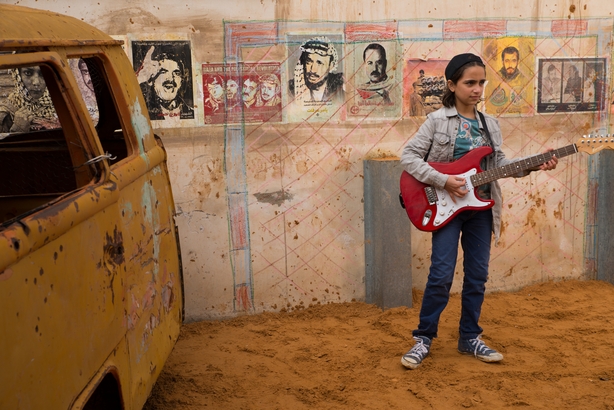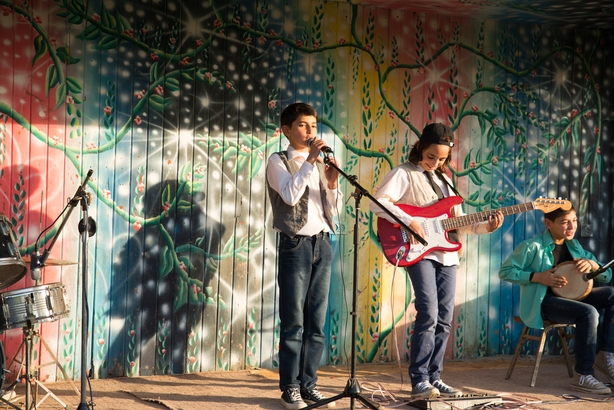There is a true story-basis to The Idol, well-known to millions of TV viewers in the Middle East, but as the details will be largely unfamiliar to Western viewers, your writer will not spoil by filling in the background.
1990s-era Gaza is where the story begins as four young teenagers play on rudimentary musical instruments for basically anyone who will listen. The singer is Mohammad Assaf, while his tomboy sister Nour plays guitar, and there are two other boys, Ahmad and Omar.
Theirs is a rather inauspicious start, and we see the kids performing on a makeshift stage outside a dwelling house. Suddenly, above their heads, a woman appears, telling them to stop their racket, as she pours a bucket of water on the heads of the hapless quartet.

Tomboy Nour on Guitar
They catch fish and grill them on the beach and sell them to try and get money to equip the band. A bid to buy instruments ends badly, as Mohammad is beaten up by the two accomplices of a garage-man who absconds with the kids' hard-earned few shekels. He had promised to buy them a servicable set of second-hand instruments but reneged on the deal. He makes an interesting cameo appearance, years later in the film which switches to 2012, mid-way.

Suffice to say that singing will not leave the extraordinarily-gifted young Mohammad, (played by Tawfeek Barhom as a young man) alone. A terrible family tragedy strikes but it only makes the youth more determined. Will he make it to Cairo Opera House as Nour once told her brother he must strive to do? The
Idol is a frequently moving and inspirational story, which despite succumbing to an air of clichéd sentiment at times, is really a must-see. The performances from all concerned are unsurpassable,
Paddy Kehoe













